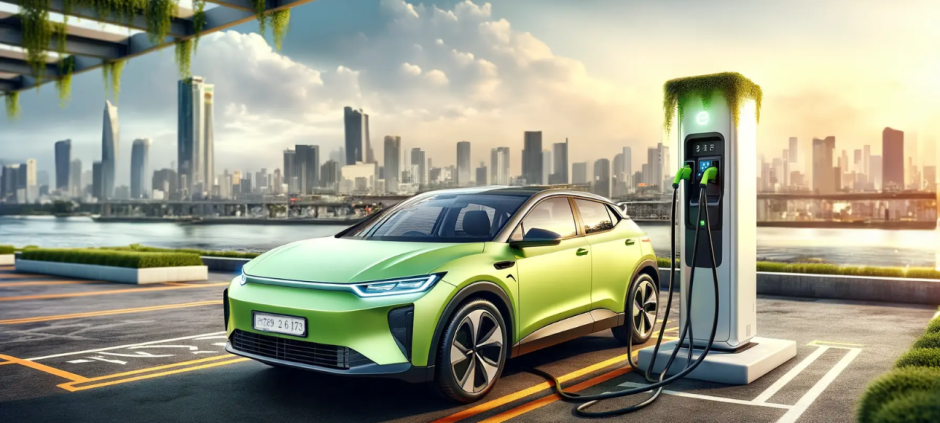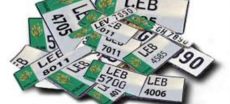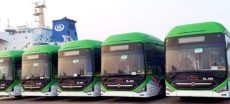The government has approved the establishment of 40 electric vehicle (EV) charging stations along motorways, with an initial power tariff set at Rs39.75 per unit as part of the draft EV policy. Additionally, the government is considering financial incentives to promote the production of electric two and three-wheelers. During a recent committee meeting on EV policy, the Pakistan Banks Association (PBA), represented by Chairman Zafar Masud, proposed a term sheet to stimulate demand for electric two and three-wheelers. Masud suggested offering a Karachi Inter-bank Offered Rate (Kibor) plus 3%, but the chair recommended keeping it at Kibor plus 2.5%. He also proposed a debt-to-equity ratio of 80:20, while the chair advised a 70:30 ratio in line with State Bank of Pakistan (SBP) regulations. The Secretary of the Ministry of Industries emphasized the necessity of providing insurance coverage for EVs, including protection against battery theft.
The committee expressed satisfaction with the proposed financing mechanisms and agreed to refine the term sheet in collaboration with the Finance Division and the SBP. They approved a report identifying 40 locations for charging stations along motorways and tasked various ministries, including communication, power, petroleum, and the Federal Board of Revenue, with resolving issues faced by oil marketing companies (OMCs) to facilitate the establishment of charging stations within three months.
Also Read: Toll Tax on National Highways and Motorways Increased by 30%
The committee was pleased with the CPPA-G’s proposal for the Rs39.75 per unit tariff for the charging stations and reached a preliminary agreement on the financing plan for electric two and three-wheelers, which will be finalized in consultation with the SBP and Finance Division. Additionally, two working groups were established: one to develop an appropriate customs duty and tax structure to encourage EV adoption and local manufacturing, and another to implement the financing plan to boost EV demand. A working group was also formed to devise a mechanism for tracking emissions and carbon credits, including the development of a dashboard within the industries ministry.
During the meeting, the industries secretary reported progress in drafting the EV policy, highlighting advancements in three key areas: regulations and the proposed tariff for charging stations, the establishment of the initial 40 charging stations on motorways, and the financing scheme for electric two and three-wheelers. The Revenue Mobilisation, Investment and Trade (ReMIT) project of the commerce ministry has agreed to support the industries ministry by providing a team of experts, including one with international experience, to assist in policy formulation.
The managing director of the National Energy Efficiency and Conservation Authority (Neeca) presented newly approved regulations for charging stations, which will be notified soon to encourage investment by removing upper limits on charges. These regulations cover critical aspects such as one-window operations, charge standardization, approval timeframes for electric connections by power distribution companies, and energy conservation and safety codes.
Parliamentary Secretary for Climate Change Ahmed Atteeq Anwar urged Neeca to ensure charging stations could accommodate multiple vehicle types through multi-bead connectors, given the limited number of stations currently available in Pakistan. Following this, CPPA-G presented scenarios regarding power tariffs and profitability for charging station owners, along with savings for EV users. The Energy Centre at the Lahore University of Management Sciences (LUMS) noted that maintaining a power tariff around Rs40 per kilowatt-hour (kWh) would make purchasing small electric sedans financially viable within three to four years, while a higher tariff would discourage the transition to electric vehicles.
The additional secretary provided an update on the progress of identifying 40 charging station locations from Peshawar to Karachi, ensuring they are within 120 km intervals, primarily at service stations owned by the National Highway Authority (NHA). The OMCs operating petrol pumps at these service stations expressed no objection to installing charging stations at their own cost, though they will need support for power connections. The new Neeca regulations are expected to facilitate this process.
To further reduce power tariffs, the industries secretary proposed utilizing extra land in service areas or alongside motorways for solar stations, a suggestion that NHA’s Tahir Jamil agreed to consider for future discussions. Anwar emphasized the importance of installing signs to indicate charging station locations and suggested measures such as advance booking to minimize waiting times.










